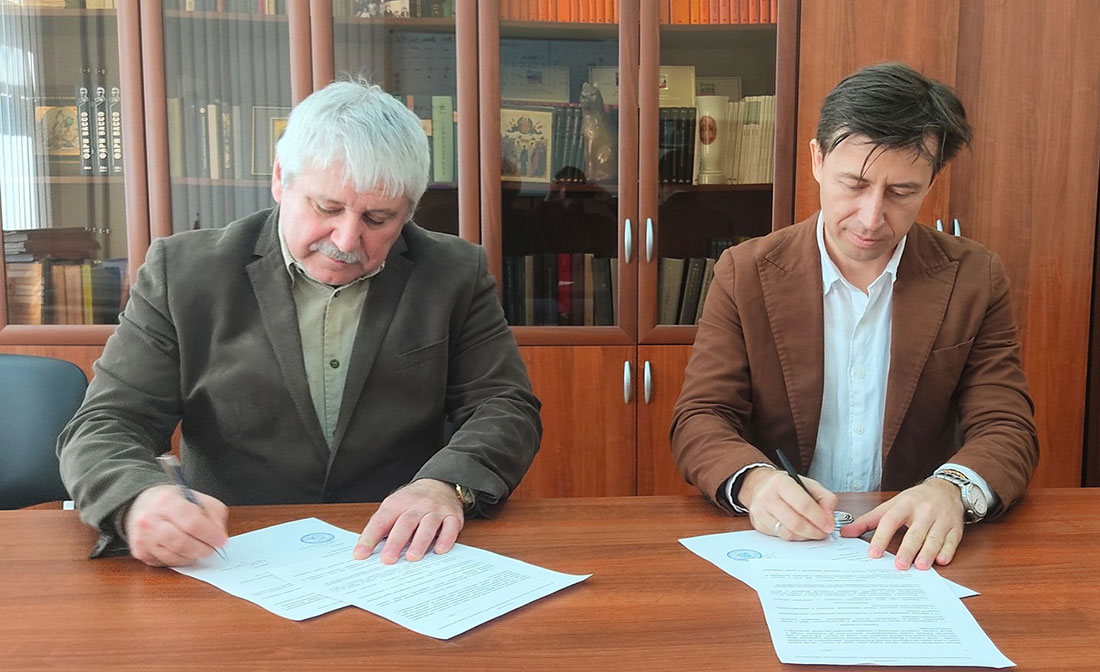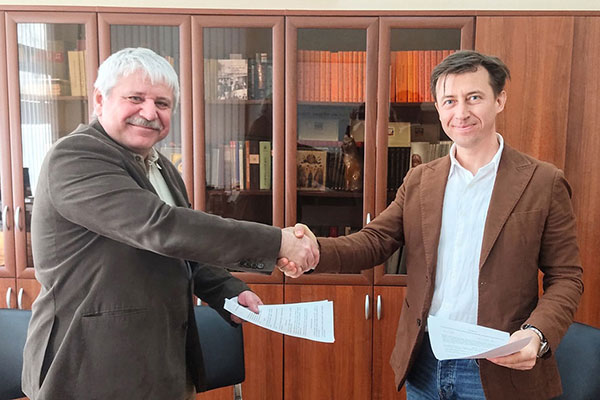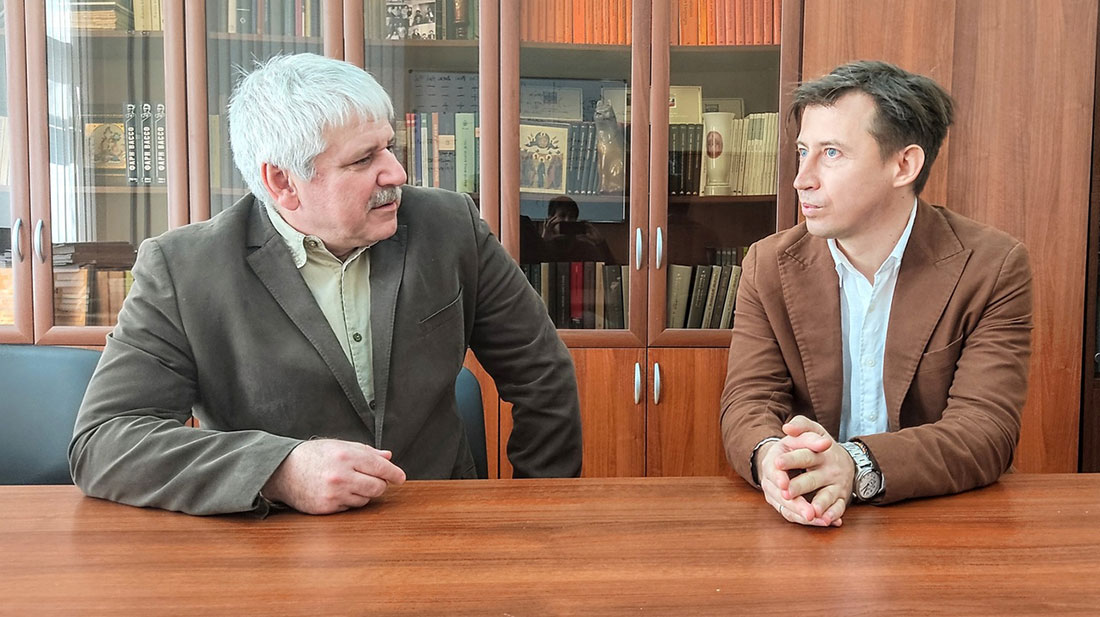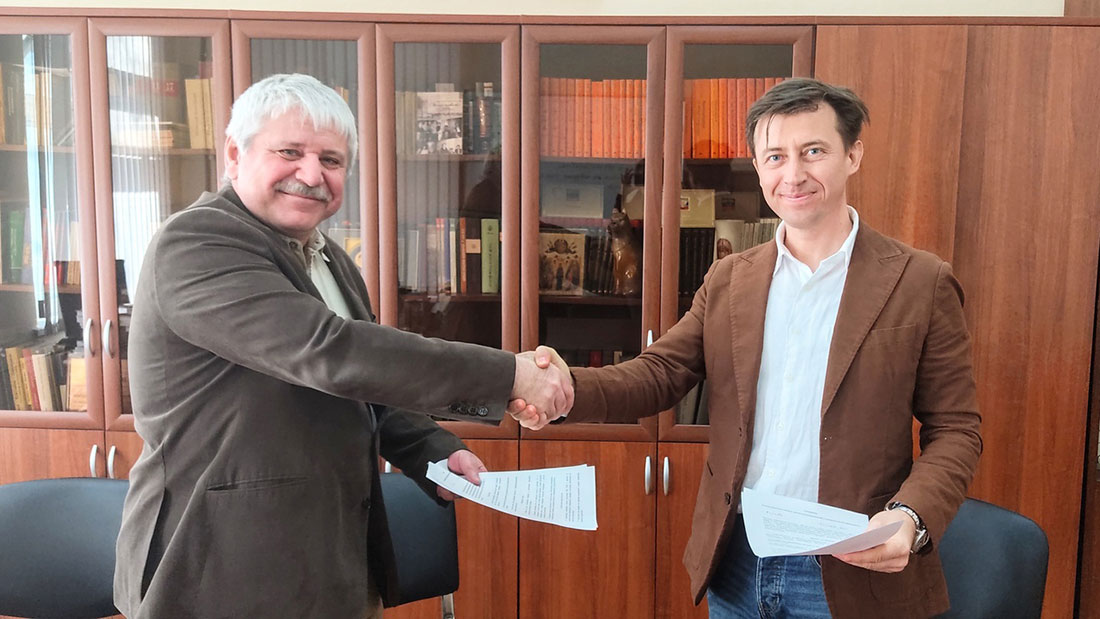The Museum of World Languages and the Institute of Linguistics of the Russian Academy of Sciences signed an agreement on cooperation in research and educational activities on mutual exchange of information, scientific and educational materials, and accumulated experience.
Under the Agreement, the Institute of Linguistics of the Russian Academy of Sciences will provide scientific, expert and advisory support to the Museum of World Languages.
The Institute has also provided the Museum with a large amount of linguistic literature, which is of significance for the Museum’s work.
But most importantly, work has begun on a fairly large-scale project of a new museum installation, devoted to a consistent scientific-linguistic reconstruction of all stages of the Russian language and its ancestors, beginning with the Proto-Indo-European language (4500-3000 years BC). Today, the Indo-European language family is the largest by number of speakers, and includes over 400 languages, including such popular languages as Russian (and all Slavic languages), English (and all Germanic languages), French (and all Romance languages), Armenian, Persian, Hindi and many others. But 6500-5000 years ago, instead of all these languages there was just one language, which we now call Pre-Indo-European, the ancestor of all the Indo-European languages. If the project succeeds, museum visitors will have the opportunity to hear all the significant stages of the transformation of a language, from Proto-Indo-European to the modern Russian language. In essence, it will be a visual sounding history of the Russian language to a depth of over 5,000 years. It will give museum visitors a chance to touch the deep roots of the Russian language, understand the mechanisms by which all the languages of the planet are gradually changing, and visually see (and most importantly, hear) the relationship of hundreds of modern languages to each other and, more importantly, to our own native Russian language.
We congratulate the Museum of World Languages and wish it every success in its new undertaking!
the Museum of World Languages is a member of the Association of Private and People’s Museums of Russia.
Address of the Museum: 15, Vodopadnaya Street, Zelenogorye, Crimea.
Email: info@linguaworld.org
Tel.: +7 (978) 099-71-40, +7 (978) 997-51-19 (Viber, WhatsApp)
vk.com/linguamuza
linguaworld.org


An agreement on cooperation in research and educational activities is signed between the Museum of World Languages and the Institute of Linguistics of the Russian Academy of Sciences 
An agreement on cooperation in research and educational activities is signed between the Museum of World Languages and the Institute of Linguistics of the Russian Academy of Sciences


